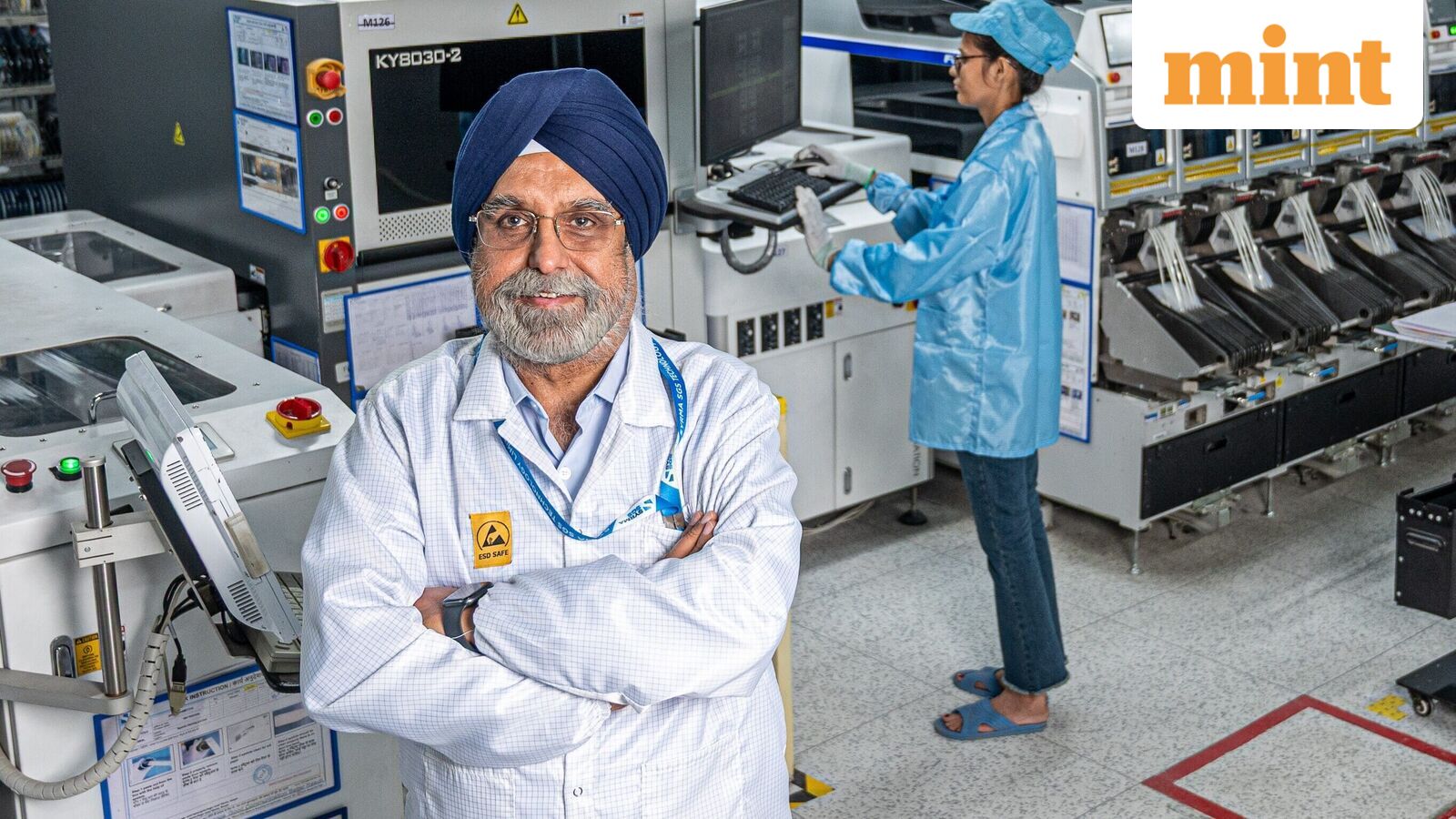Business
Syrma SGS Plans Laptop Motherboard Production by FY27

Syrma SGS, an Indian electronics manufacturing services company, is set to begin production of laptop motherboards by fiscal year 2027, according to managing director Jasbir Singh Gujral. This move aims to enhance the company’s profitability and qualify for government incentives. Currently, Syrma SGS assembles laptops for major brands including Japan’s DynaBook and Taiwan’s MSI in India.
The initiative positions Syrma as one of the first domestic firms to manufacture computer motherboards, contributing to India’s growing capabilities in electronics manufacturing. Optiemus Electronics recently announced a partnership with Taiwan’s ASRock for desktop motherboards, while Lenovo confirmed its plans to produce motherboards locally for its laptops and desktops.
As part of the central government’s production-linked incentives (PLI) scheme, which was updated in May 2023 as IT hardware PLI 2.0, companies are required to localize components beyond mere assembly to qualify for financial support. Gujral emphasized the strategic importance of this move, stating, “Only vanilla laptop assemblies do not attract PLIs.”
Currently, all laptop motherboards utilized by Syrma are imported. Gujral aims to have these components manufactured locally, which he believes will lead to a margin increase of approximately 4-5% on the company’s laptop assembly revenues, which totaled about ₹ 175 crore in the first half of fiscal year 2026. He predicts that local motherboard production could add around ₹ 10 crore to the company’s profits on a half-year basis.
Syrma SGS, based in Mumbai, has a market capitalization exceeding ₹ 15,000 crore. In its latest earnings report, the company recorded ₹ 1,146 crore in operating revenue for the second quarter of fiscal year 2026, reflecting a 20% increase sequentially. Net profit surged 33% to ₹ 66.3 crore during the same period. Despite this, the company experienced a slight decline in its gross margin, which dropped by 1.6 percentage points, and reported negative net cash flow for the first half of the fiscal year.
Gujral expressed optimism about achieving positive cash flow by the end of the fiscal year, highlighting that while working capital remains a challenge, inventory levels are manageable. “The most difficult part of controlling in a working capital cycle is the inventory and my inventories are well under control,” he stated. He noted that the increase in debtors is a concern but is confident that persistent follow-ups will help reduce it.
Analysts are viewing Syrma’s financial adjustments with caution. Harshit Kapadia, vice-president at Elara Capital, noted that while the deferment of cash flow quality is a near-term issue, the company’s overall financial health appears sound. “The focus areas are strong, which should give investors good confidence in the long run,” he commented.
On a positive note, analysts from JM Financial remarked on Syrma SGS’s robust performance in the second quarter, leading them to maintain a ‘buy’ rating on the stock. Following the earnings announcement, the company’s share price increased by 2.85% to ₹ 831.05 per share. Since going public in August 2022, Syrma SGS has delivered a return of 3.77x to investors, outperforming the 30-share BSE Sensex index, which has risen by 43% in the same period.
The push for local electronics manufacturing has been supported by government initiatives, including the PLI schemes aimed at boosting the assembly of consumer electronics and industrial products in India. Syrma SGS was approved for the Electronics Components Manufacturing Scheme (ECMS) on October 27, 2023, which is specifically for manufacturing printed circuit boards (PCBs). Gujral anticipates trial production of PCBs by January 2027, with a total project cost of ₹ 765 crore, making the company eligible for incentives of approximately ₹ 380 crore.
In addition to motherboard production, Syrma SGS is also focused on increasing exports to enhance its operating margins. The company aims to achieve a double-digit EBITDA (earnings before interest, tax, depreciation, and amortization) margin, having reached 10.7% in the first half of fiscal year 2026. With a 36% increase in exports primarily from industrial, healthcare, and automotive sectors, Gujral remains optimistic about the company’s growth trajectory.
India’s electronics export landscape is thriving, with net electronics exports rising 33% year-on-year to reach $38.6 billion in fiscal year 2025, according to a report by the India Cellular and Electronics Association. As companies like Syrma SGS continue to expand their capabilities, the future of electronics manufacturing in India looks promising.
-

 World5 months ago
World5 months agoSBI Announces QIP Floor Price at ₹811.05 Per Share
-

 Lifestyle5 months ago
Lifestyle5 months agoCept Unveils ₹3.1 Crore Urban Mobility Plan for Sustainable Growth
-

 Science4 months ago
Science4 months agoNew Blood Group Discovered in South Indian Woman at Rotary Centre
-

 World5 months ago
World5 months agoTorrential Rains Cause Flash Flooding in New York and New Jersey
-

 Top Stories5 months ago
Top Stories5 months agoKonkani Cultural Organisation to Host Pearl Jubilee in Abu Dhabi
-

 Sports4 months ago
Sports4 months agoBroad Advocates for Bowling Change Ahead of Final Test Against India
-

 Science5 months ago
Science5 months agoNothing Headphone 1 Review: A Bold Contender in Audio Design
-

 Top Stories5 months ago
Top Stories5 months agoAir India Crash Investigation Highlights Boeing Fuel Switch Concerns
-

 Business5 months ago
Business5 months agoIndian Stock Market Rebounds: Sensex and Nifty Rise After Four-Day Decline
-

 Sports4 months ago
Sports4 months agoCristian Totti Retires at 19: Pressure of Fame Takes Toll
-

 Politics5 months ago
Politics5 months agoAbandoned Doberman Finds New Home After Journey to Prague
-

 Top Stories5 months ago
Top Stories5 months agoPatna Bank Manager Abhishek Varun Found Dead in Well









